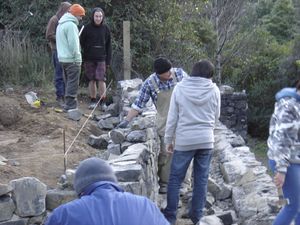Action competence
Action competence is defined as: “an individual’s capacity of critically selecting and conducting possible actions that may solve societal problems through democratic mechanisms" (Odabaşı1, Kurt1, et al., 2011, p. 1). In education, when democratic principles are used individuals can decide how, when, what, where and with whom they learn, and they are able to contribute equally to decisions about their learning. Therefore, they have shared responsibility and freedom in their choice of activity to achieve their goals for learning.
Overview
Theories and thinking about democratic education originated with John Dewey. When action competence is applied to education, a problem-oriented approach to learning is taken, and through action learning, real society-changing solutions are found for the issues that emerge. Therefore, activities for the 'sake of them' are not undertaken, rather authentic learning opportunities are engaged in.
Skills of critical analysis, inquiry, reflection and having a vision for a future where societal issues are resolved through collective action are key. According to Jeffrey (2011), "the ability to be constructive in the change process at a societal level determines an individual’s action competence" (p. 9). Therefore, in this course collaboration on solving issues around assessment for action competence will require a degree of interaction with others. Also, the ability to engage in a social learning situation with others is an important component of action competence. As are the cultural influences that shape the learning experience.
|
|
|

